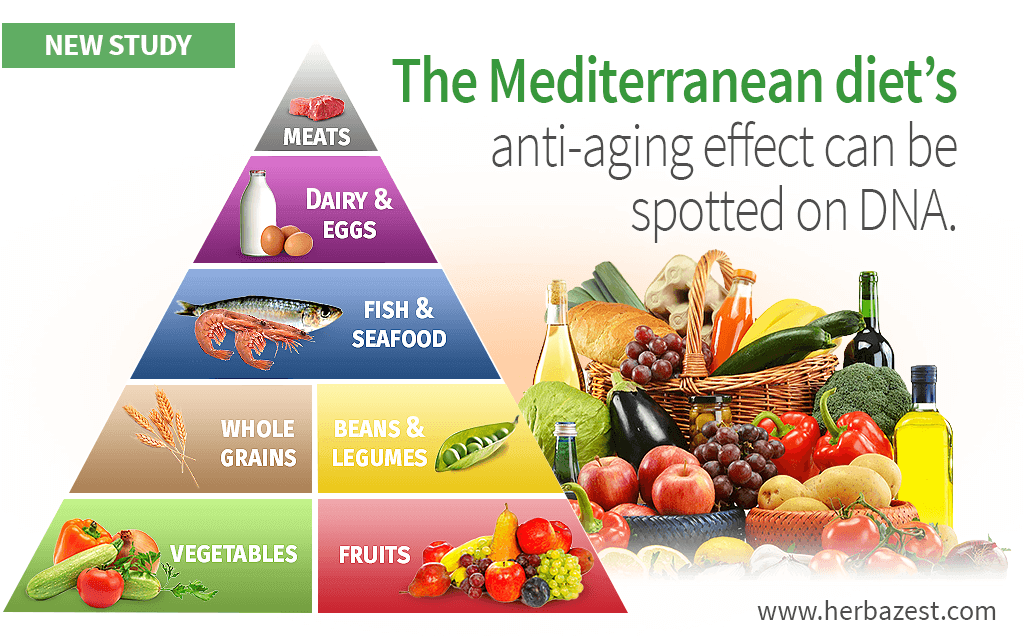A wide range of health benefits has been attributed to the traditional Mediterranean diet, including a decreased risk of chronic disease and anti-aging effects. This nutritional regimen can be traced back to the Ancient Greeks, and it has been commonly practiced across the Mediterranean region, from the valley of the Nile, in Egypt, to European coastal areas, where great Western civilizations emerged.
A Mediterranean diet typically includes herbs like garlic, thyme, and olive because of the unique coastal climate in these countries.
Vegetables and fruits are at the base of the Mediterranean diet, followed by nuts, legumes, and whole grains. It is also characterized by being low in saturated fats and high in healthy lipids, namely olive oil. Animal consumption is moderated and focused on seafood, with a very low intake of dairy products, meat, and poultry, and regular but moderate wine consumption with meals.
Due to the increasing popularity of the Mediterranean diet and its amazing, observable benefits, a long-term study was carried out to examine whether adherence to this regimen influences biological markers, particularly telomere length.
Telomeres are the end of chromosomes; each time a cell replicates, its chromosomes' telomeres become shorter. For this reason, the length of telomeres is an important biomarker of aging.
The Study
The ongoing study started in 1976, with the participation of 121,700 female nurses in 11 U.S. states, and it had covered four decades of observations and blood samples. Specific data had been collected from a sub-set of 4,676 healthy nurses, whose leukocyte telomere length had previously been measured and who had completed food frequency questionnaires. The telomeres had been taken in a sample of blood drawn from the participants.
The Results
The results of the study showed that the women who adhered to this type of diet had indeed longer telomeres. At the moment of the last evaluation, the age range of the participants was 42 - 70 years old.
As expected, lifestyles were reflected in the results. While younger women had longer telomeres, naturally, the ones with shorter telomeres in that group were light smokers.
Women in the highest score group consumed higher amounts of vegetables, fruits, grains, fish, legumes, nuts, and total fat, and their intake of meat was very low.
In the highest score group of all ages are the women who showed stronger adherence to the Mediterranean diet. Within this group, the older women had slightly lower body mass index, smoked less, had higher intake of total energy, and were more physically active.
What Does This Mean?
As telomere length is directly connected to aging, the findings are actually quite telling. The longer telomere length means less aging overall, so it can be concluded that the Mediterranean diet holds a key to overall health and longevity. However, this is an ongoing study, and further research can reveal more about how the Mediterranean diet positively affects other biomarkers of age.
Sources
- BMJ Global Health, Mediterranean diet and telomere length in Nurses’ Health Study: population based cohort study, 2014
- Harvard University, Mediterranean diet has marked impact on aging
- Iranian Journal of Public Health, The Mediterranean Diet: A History of Health, 2013




